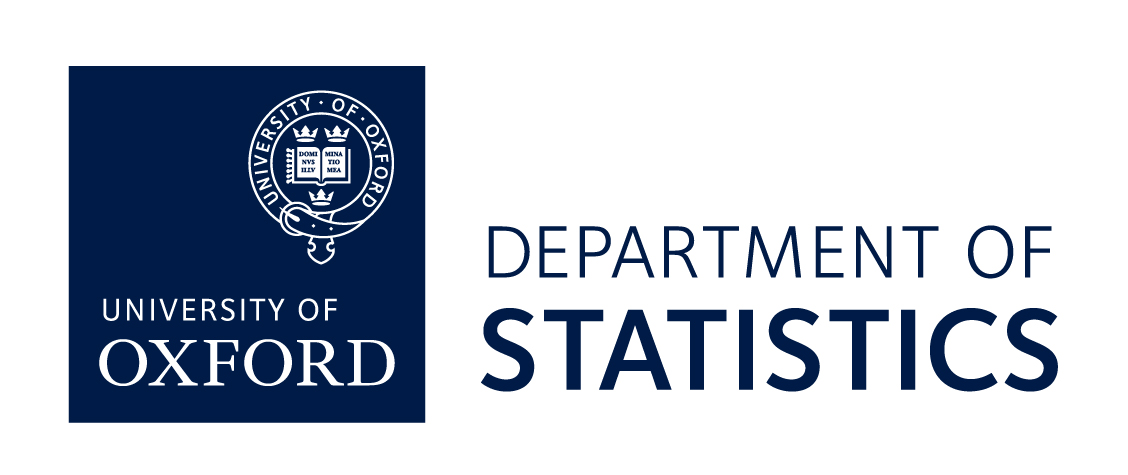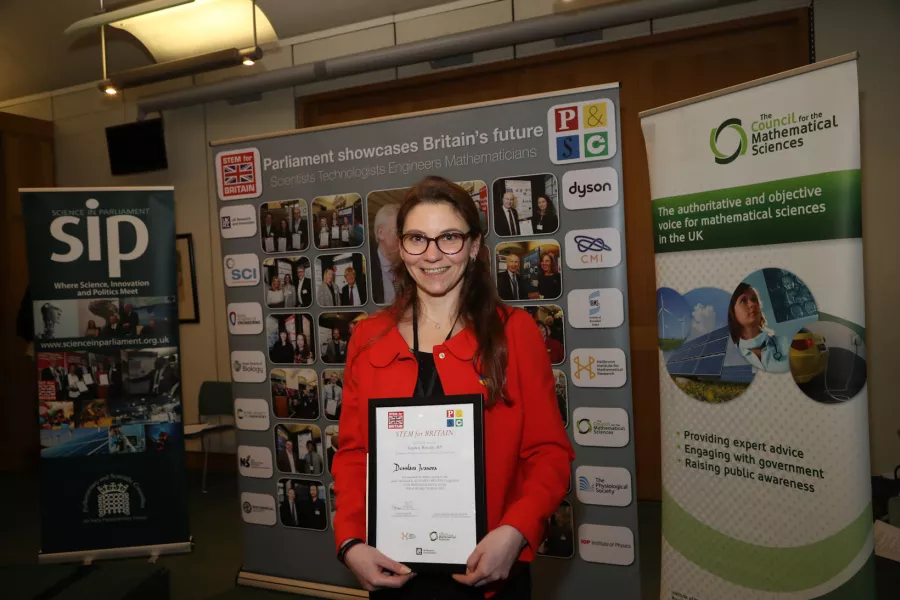Desi Ivanova, a DPhil student at the Department of Statistics, was awarded Bronze at a competition in the House of Commons, for the excellence of her mathematical research, walking away with a £750 prize. Desi presented her winning research to dozens of politicians and a panel of expert judges, as part of the poster competition STEM for BRITAIN, on Monday 7th March 2022. Desi is a second-year student in the StatML CDT, working with Tom Rainforth and Yee Whye Teh. Her research, which focuses on “automated adaptive experimental design”, was judged against 19 other shortlisted researchers’ work and came out as one of the three winners. Desi said, “I think the most important part was to be here today in real life, and to see so many young scientists and their research. I’m super happy about the third place, of course, but I’m just really glad that I had the opportunity to speak to so many other people about both their research and mine. I work in the field of experimental design and there are so many ideas about future extensions of the projects that I’m working on. The next challenge is finding the time to do so!”
STEM for BRITAIN aims to help politicians understand more about the UK’s thriving science and engineering base and rewards some of the strongest scientific and engineering research being undertaken in the UK.
Stephen Metcalfe MP, Chair of the Parliamentary & Scientific Committee, sponsors of the mathematics awards said: “The Parliamentary & Scientific Committee is delighted to sponsor the mathematics awards. This annual competition is an important date in the parliamentary calendar because it gives MPs an opportunity to speak to a wide range of the country’s best young researchers. These early career engineers, mathematicians and scientists are the architects of our future and STEM for BRITAIN is politicians’ best opportunity to meet them and understand their work.”
Prof Paul Glendinning, Director of the Institute of Mathematics and its Applications - speaking on behalf of the Council of the Mathematical Sciences - said: “Maths is really important. It’s the quantitative language of the world. It is important culturally, and it is important economically. According to research from Deloitte, maths is deemed to be responsible for 17% of the UK’s GDP - and that is without counting the value of ‘Big Data’. The privacy of our banking, the integrity of our national security, the innovation of new ideas and greater efficiencies, can all be traced to mathematics. So a great thanks to all of those that took part in this year’s STEM for BRITAIN awards and for showcasing mathematics. It has showed a wonderful diversity of ideas, and just as importantly, a wonderful diversity of people.”
Geoffrey Grimmett, Chair of the Heilbronn Institute for Mathematical Research - which is sponsor of the Bronze award - said: “It to Gauss that we attribute the saying that ‘Mathematics is the Queen of the Sciences’. In fact, mathematics is more like a ‘Queen Bee’, it has many partners and all-comers are welcome. What this event indicates is the great centrality of mathematics, and how this has enriched the subject and our connections enormously. The recognition of skill and potential in young scientists is essential, and it’s been a great privilege to be here today to see these wonderful posters and the work that has been done.”
The Parliamentary and Scientific Committee runs the event in collaboration with the Royal Academy of Engineering, the Royal Society of Chemistry, the Institute of Physics, the Royal Society of Biology, The Physiological Society and the Council for the Mathematical Sciences, with financial support from Dyson, Clay Mathematics Institute, United Kingdom Research and Innovation, Society of Chemical Industry, the Nutrition Society, Institute of Biomedical Science, the Heilbronn Institute for Mathematical Research, the Biochemical Society and IEEE UK & Ireland Section.



